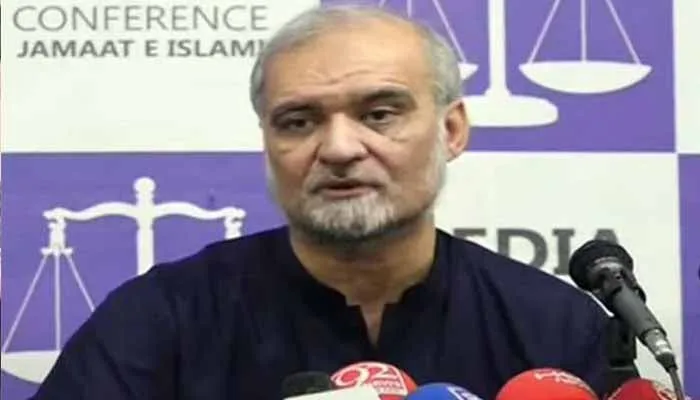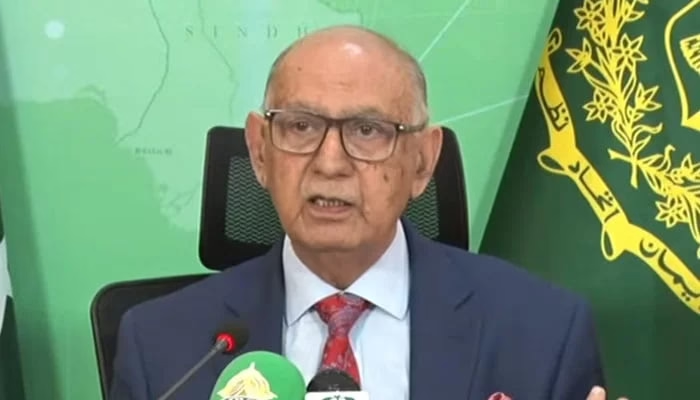Lahore: Hafiz Naeemur Rehman, Amir of Jamaat-e-Islami, has voiced serious concerns about the crippling costs of electricity and the pervasive corruption that are driving people to leave Pakistan. In a recent press conference held in Lahore, Hafiz Naeem highlighted the detrimental impact of expensive electricity on the country’s industrial sector and criticized the financial practices of Independent Power Producers (IPPs).
Hafiz Naeem pointed out that an IPP had earned a staggering profit of 28 billion rupees without generating a single megawatt of electricity. He revealed that IPPs were paid a total of 1800 billion rupees, yet 9000 megawatts of electricity, for which the nation has paid, remains unused. He questioned why the contracts with IPPs have not been revised to reflect more favorable terms for the nation. The inefficiencies and financial burdens imposed by these agreements have significantly strained the country’s resources and hindered industrial growth.
He further expressed frustration over the government’s energy policies, citing the prohibitive costs of electricity as a major factor pushing people to emigrate. Hafiz Naeem noted that many individuals have resorted to installing solar panels due to the unreliable and expensive electricity supply. However, he criticized the government’s plans to end net metering and impose additional taxes on solar panels, which would further discourage the adoption of renewable energy solutions. This, he argued, would only exacerbate the challenges faced by industries struggling to cope with high energy costs.
Hafiz Naeem’s press conference also addressed broader issues of economic mismanagement and corruption. He accused a certain segment of society of not declaring their assets and illegally transferring Pakistan’s wealth abroad. He called on the Supreme Court to investigate the Dubai Property Leaks and urged the Election Commission to disqualify those who fail to declare their assets. This lack of transparency and accountability, he argued, is undermining the country’s economic stability and driving away its citizens.
In a scathing critique of government officials, Hafiz Naeem referenced a minister who claimed to have acted legally while transferring money abroad. He suggested that such individuals should consider becoming ministers in Dubai if they are more committed to their overseas interests than to Pakistan. He called for stringent measures to trace the money trails of politicians, bureaucrats, and military officers involved in offshore investments, citing leaks from London, Australia, and other locations as examples of the widespread corruption.
Hafiz Naeem’s statements reflect a deep frustration with the current state of governance and economic policies in Pakistan. His call for a comprehensive inquiry into asset declarations and financial practices underscores the urgent need for reforms to restore public trust and ensure equitable economic growth. The exorbitant electricity costs and the resulting industrial decline, coupled with systemic corruption, have created an environment where emigration seems to be the only viable option for many.
The implications of these issues are profound, affecting not only the industrial sector but also the overall economic health of the nation. Hafiz Naeem’s demands for revising IPP contracts, reducing electricity costs, and increasing transparency in asset declarations are aimed at addressing these fundamental problems. If implemented, these measures could help alleviate the financial burden on industries, encourage investment in renewable energy, and curb the illicit outflow of wealth.
Hafiz Naeemur Rehman’s press conference highlighted critical issues that need urgent attention. The high cost of electricity and pervasive corruption are driving talented and skilled individuals out of the country, which could have long-term detrimental effects on Pakistan’s development. Addressing these challenges through comprehensive reforms and stringent oversight is essential to reversing this trend and fostering a more sustainable and prosperous future for the country.



